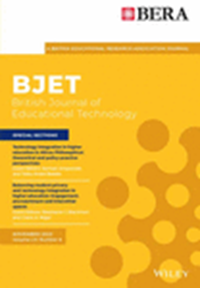Collaborative Cell Groups: Bridging separation in the Community of Inquiry in a context of Internationalization at a Distance
Abstract
The internationalization of higher education increasingly involves ‘Internationalization at a Distance’ (IaD), a modality that alters how students engage with learning communities across geographical and cultural divides. Despite its growing prevalence, the complexity of fostering student engagement in transnational settings remains underexplored. This study investigates the application of the Community of Inquiry (CoI) framework—comprising teaching, cognitive and social presence—within a transnational Master of Education programme delivered jointly by an Australian university and a Chinese educational institute. Findings reveal significant challenges in achieving robust CoI elements due to geographical separation and cultural disparities, which undermine effective engagement. In response, students developed Collaborative Cell Groups, informal, peer-led communities that enhance engagement by localizing knowledge, fostering social cohesion and supplementing teaching presence. These groups illustrate both the potential and limitations of informal peer support within formal learning structures. By critically examining the interplay between formal and informal learning communities, this study offers new insights into optimizing engagement in cross-cultural distance education.
Practitioner notes
What is already known about this topic?
- The Community of Inquiry (CoI) framework has been widely recognized for structuring online learning environments by fostering cognitive, social and teaching presence to support meaningful learning experiences.
- Prior research has primarily examined the application of the CoI framework in domestic online education settings, with limited exploration of its effectiveness and challenges in cross-cultural or transnational contexts like Internationalization at a Distance (IaD).
- Existing studies suggest that while the CoI framework can provide a structured approach to enhancing engagement, its ability to fully support student participation may be hindered by factors, such as geographical separation and cultural disparities.
What this paper adds
- This study highlights the limitations of the CoI framework in fully supporting student engagement within IaD settings. Specifically, it demonstrates how cultural and geographical divides between students and instructors can hinder the effective establishment of teaching, cognitive and social presence.
- To address these challenges, the paper introduces the concept of Collaborative Cell Groups (CCGs)—informal, peer-led communities strategically designed to enhance engagement. By localizing knowledge, fostering culturally responsive peer support, and bridging social and cognitive divides, CCGs complement and extend the CoI framework. Unlike general social media-based interactions, CCGs operate with a structured intent to overcome the unique barriers faced in transnational and cross-cultural educational contexts.
Implications for practice and/or policy
- Educational institutions should consider facilitating the formation of peer-led informal learning groups to support student engagement and learning outcomes in transnational education programmes.
- Policies should emphasize the need for culturally adaptive learning frameworks that integrate both formal instructional guidance and informal peer collaboration to overcome the challenges of geographically and culturally dispersed learning environments.




 求助内容:
求助内容: 应助结果提醒方式:
应助结果提醒方式:


